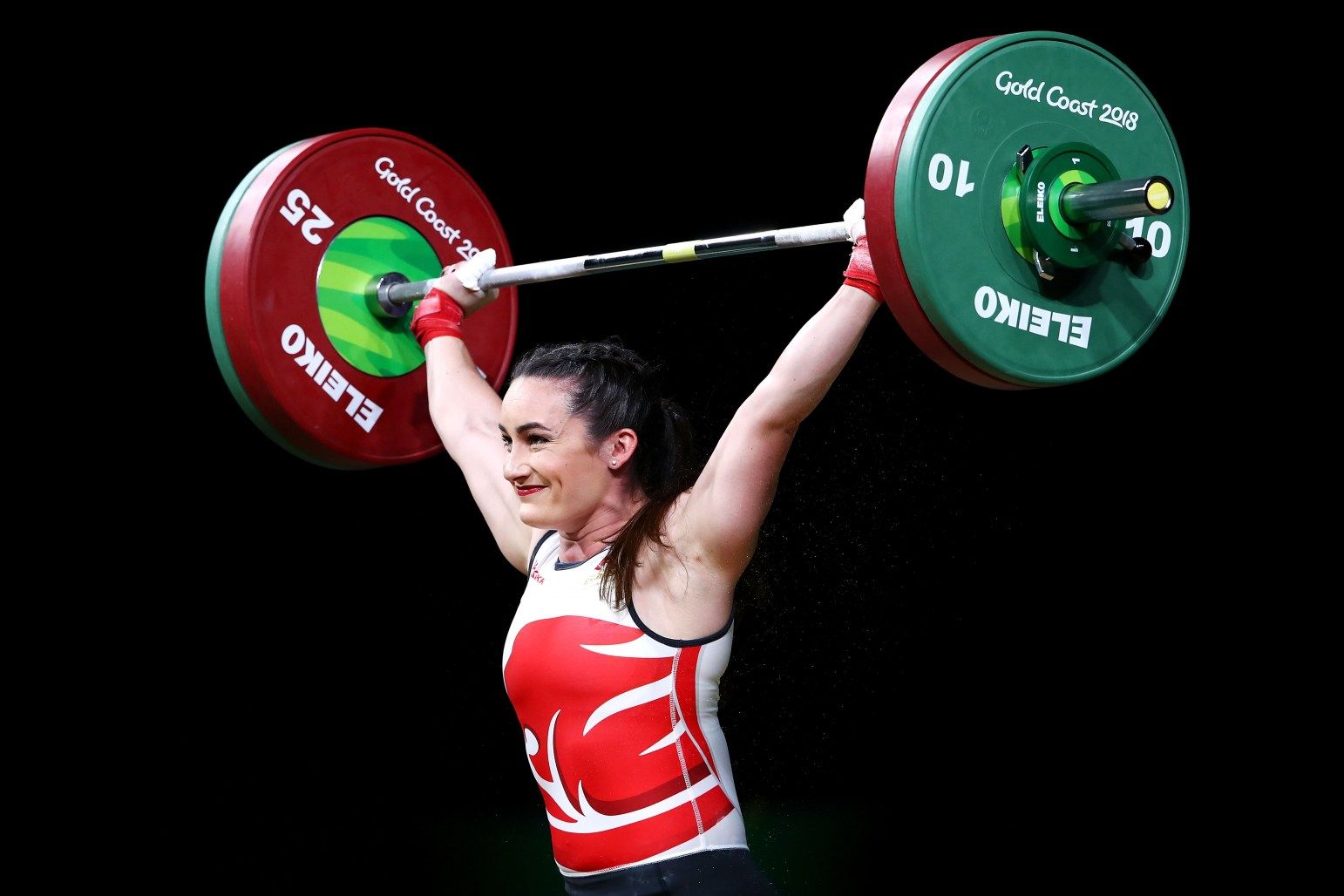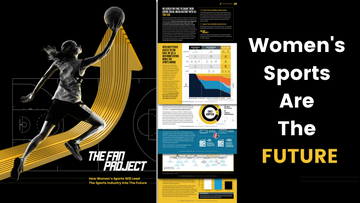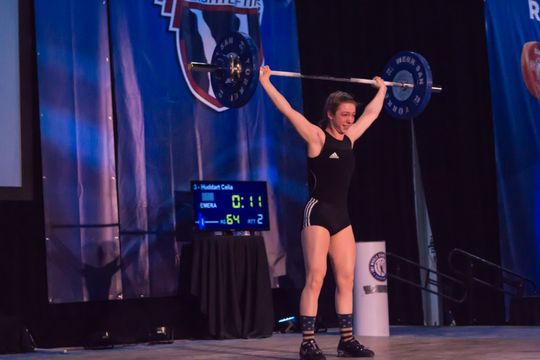Sarah Davies does not mince her words. The 28-year-old European Championship silver medalist, who stands on the verge of qualifying for the Olympics, is as direct in conversation as she is in competition. It's a quality forged from fighting on two very different fronts.
Davies, currently ranked fourth in the world in her weightlifting category, is at the forefront of efforts to expand representation in a sport that only established a women's Olympics tournament in 2000.
She's also challenging stereotypes by competing in beauty pageants, winning the "Miss Intercontinental England" title in 2019. Davies' frame – which regularly allows her to lift over 100kg, setting a British record of 129kg in the clean and jerk at this year's European Championships – saw her singled out for abuse from spectators at a pageant in Thailand. It's an experience that ultimately motivated her, though it was fraught and difficult at the time.
"When I was getting trolled, it made me fight harder in a way," says Davies.
"They were saying, She shouldn't be here, she looks like a man, and all this kind of stuff. When I first read the comments, they upset me, but then I thought that this is exactly why I was there: to prove that I deserved to be there.
"[The pageant organizers] tried to stop me walking in swimwear, but we had 60 girls from all over the world and before you knew it, it was a case of, If Sarah doesn't walk, none of us do and you don't have a show... Obviously, the organizers have got sponsors that rely on that show to go ahead, so I got up on stage and you could hear the cheer from the back room, where the girls were watching on TV screens.
"Their support was phenomenal. Every single woman on that stage deserved to be there. We're all different and we all stand for different things and we all look different... It's made me shout louder about everything that I stand for."
Davies' passion for pageants stems in part from a desire to inspire budding athletes. As a youngster, the Commonwealth Games silver medalist endured criticism from her peers and wants to tackle traditional perceptions of femininity.
"Growing up as a gymnast, I was bullied for being muscular when I was at school," says Davies. "I just think that if I can make a difference to an 11-year-old me somewhere, that that sees me and goes, You know what, this girl has got some muscles and she's really strong, but she's still feminine, that's a big thing."
Davies is a member of the International Weightlifting Federation's Executive Board, one of only two women in the group of 22. The prospective Team GB member says she often faces outdated reactions to her calls for reform. Scandals involving doping and corruption in the IWF have rocked the sport's international governing body in recent years, and Davies wants to be part of the change.
"There's definitely a sense of an 'old boys club' in the way that they speak to me," says Davies. "It's not necessarily like, You're a woman, shut up, but it's their demeanor: they speak to me in a way they don't speak to each other... It's not a direct attack on gender, but the way they speak to women is very different. They've picked a fight with the wrong girl, though."
Davies' ability to overcome adversity has been tested to the limit in her bid to qualify for the Olympics, which was almost derailed by a series of events starting in early 2019.
"I had to completely reset my life in the middle of Olympic qualification. I moved house three times, changed coach, which is a major thing, as well as getting over the breakdown of a serious relationship," says Davies.
"I was supposed to be getting married to the guy… he was the reason I got into weightlifting, so I was kind of trying to find my identity in weightlifting as a single person, as Sarah, rather than as part of a partnership... I thought about stopping: I was like, I can't hack this, I'm done."
Davies highlights the travel restrictions imposed in the wake of the coronavirus outbreak – as well as the postponement of the 2020 Olympics – as an unlikely catalyst for dealing with the challenges in her personal life.
"In 2019, I just kept running away from my problems. I just kept getting on flights, going places and thinking that would fix all my problems," says Davies. "In 2020, that wasn't possible, so I had to face the full reality of it, which did me a favor. Otherwise, I'd probably just still be getting on planes."
"The extra year has helped me because it's only since February that I fully feel like myself again and able to go out on the platform, whereas I think if the Games hadn't been delayed, it would have been difficult for me to go out there and to perform to the best of my abilities," she adds. "In some ways, I'm kind of thankful for everything stopping because it's allowed me to keep training, get my feet back to where they need to be, and push forward."
Whilst Davies is still awaiting official confirmation that she has qualified for the Olympics, her current world ranking and limited points on offer to her competitors mean she is virtually assured of her spot in Tokyo.
Davies is set to travel to Japan alongside compatriots Emily Muskett and Emily Campbell, who are well-placed to qualify for the Olympics after winning European Championship gold medals in Moscow.
That success, combined with Davies' medal haul, represented Britain's best return in the competition since 1948 and the trio look set to fly the flag on their own in Tokyo, with no British lifters currently in a position to secure Olympic qualification for the men's competition.
Whilst the prospect of carrying a country's expectations may sit uneasily on some shoulders, Davies seems renewed and ready to accept the challenge as a weightlifter and beauty queen comfortable on any platform.
(Photo: Team England)




